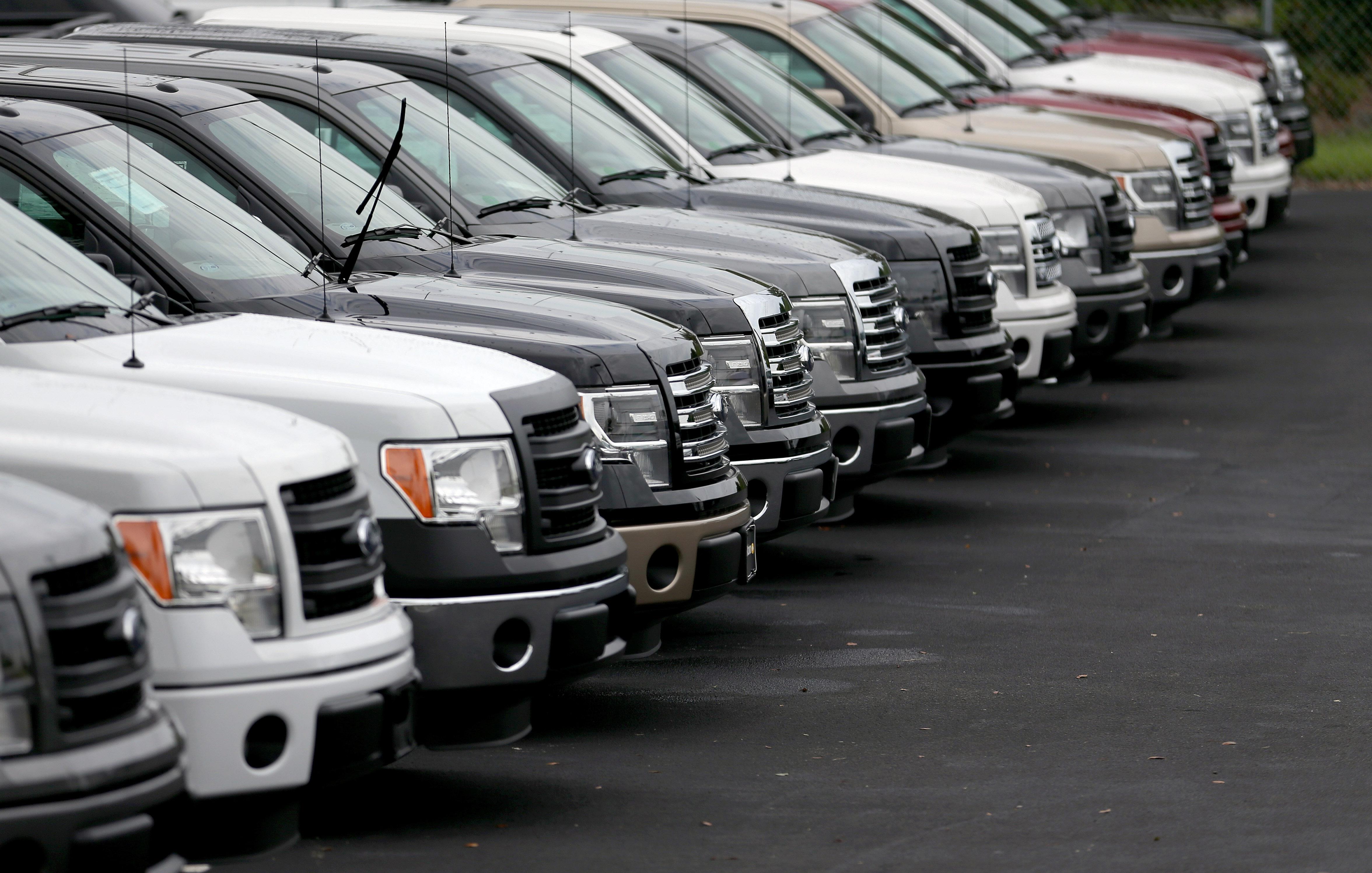Gasoline has a number of properties that make it an amazingly useful source of fuel, but it also has the downside that when you burn it you generate a lot of toxic pollution. This is why it’s generally unpleasant to hang out in poorly ventilated parking structures and why inhaling car exhaust fumes was once a favorite method of suicide. Basic economics says that when something is useful (like burning gasoline) but also creates a lot of problems for third parties (like exhaust fumes) an unregulated market will overproduce it. That’s why American public policy has, for decades, sought to promote the use of more fuel-efficient vehicles.
That’s human progress, unless you’re George Will in which case the popularity of Ford F-150 trucks represents a lonely stand for the freedom to poison the air:
Have consumers thanked him for trying to wean them from their desire to drive large, useful, comfortable, safe vehicles that he thinks threaten their habitat, Earth? The 2013 numbers tell the tale of their ingratitude. In 2013, for the 32nd consecutive year, the best-selling vehicle was Ford’s F-Series pickups. This supremacy began, fittingly, in the first year of Ronald Reagan’s deregulatory presidency.
In truth, though the Reagan administration tried to roll back CAFE standards they failed at this and fuel-economy rules have been steadily ratcheted upwards since the mid-1970s. What’s more, on average vehicles of all types have gotten much cleaner over the years.
Indeed, it turns out that even mighty Ford is getting the F-Series on the bandwagon. Earlier this week the automaker unveiled a revised edition of the best-selling vehicle in America with a body that’s made 95 percent out of aluminum. This nearly all-aluminum truck will be 12 percent lighter than its predecessor, which should drastically boost fuel efficiency without sacrificing power. And did you know that “[t]he 2015 model will be offered with the 3.5-liter EcoBoost V6 and a new 2.7-liter, twin-turbo six said to have the same power as a mid-range V8 engine”?
Two takeaways from this. One is that government regulation is often a significant spur to innovation. Car companies turn out to be really good at solving engineering problems. But as a matter of corporate financial planning, it’s not always clear what problems you should be hiring people to solve or really if it’s worth paying them to solve anything at all. But faced with a fuel-economy standard, you get lots of progress on more efficient engines and lighter-weight material. The other takeaway is that even truck-loving real Americans care about fuel efficiency! Hence Ford’s interest in offering non-V8 options to its truck buyers. And actually this makes perfect sense. Here in the D.C. area where George Will and I live, most trips people take are pretty short and there’s no real reason to own a large truck. Prosperous people can easily afford to be relatively indifferent to the fuel economy of their sedan. But when I go visit my in-laws in rural Texas, people need trucks for a lot of common tasks and they regularly find themselves driving long distances. Under the circumstances, even a modest boost in fuel economy can lead to large financial gains.
So if Ford can really pull this off and make a lighter full-sized truck, good for them. It’ll be a boon to the country. But maybe don’t tell George Will. I’m not sure he’ll survive the news.
